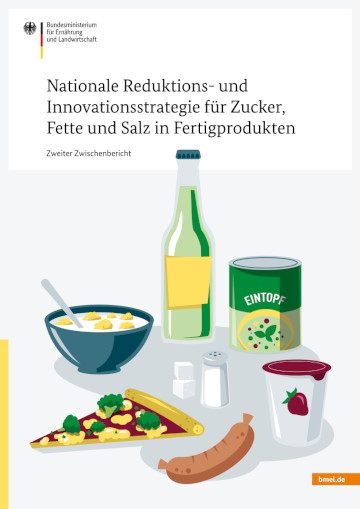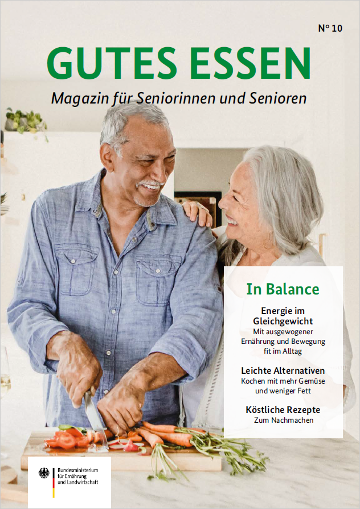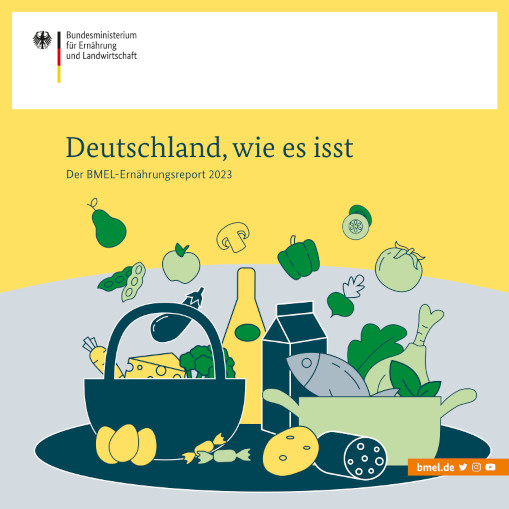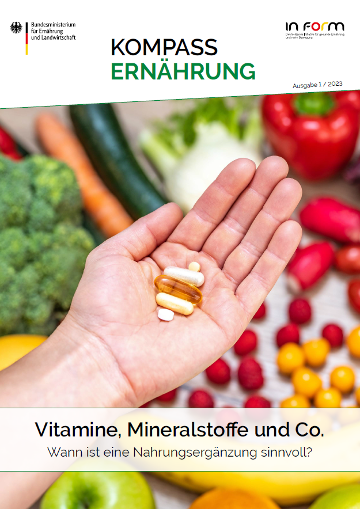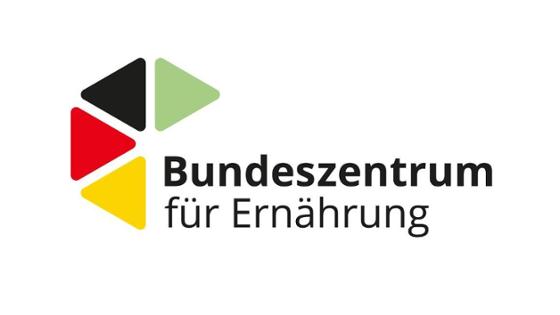National Strategy for the Promotion of Breastfeeding
Breastfeeding provides the natural and optimum nutrition for babies and a sustained benefit to the health of both infants and their mothers. To make Germany a more breastfeeding-friendly country and enhance breastfeeding promotion in Germany in a sustainable manner, the Federal Ministry of Food and Agriculture (BMEL) has developed a National Strategy for the Promotion of Breastfeeding. When it comes to implementing this strategy, existing and well-proven services will be interlinked with new measures and networking between relevant stakeholders will be promoted.
Why does Germany need a National Strategy for the Promotion of Breastfeeding?
Breast milk contributes to the optimum nutrition of infants. Breastfeeding has a beneficial impact on the health of mother and child, both in the short and the long term. Breastfed babies have a reduced risk of cot death, also known as Sudden Infant Death Syndrome, and are less likely to suffer from diarrhoeal and respiratory infections or otitis media during their first year of life. In the long run, children that were breastfed are less likely to become overweight or to develop type-2 diabetes later in life than children that were not breastfed. Nevertheless, only 40 percent of all infants in Germany are exclusively breastfed, i.e. without receiving complementary foods or fluids, until four months of age. This is true even though Germany currently recommends that infants be exclusively breastfed until six months of age or, at the very least, until four months of age.
What are the aims of the National Strategy for the Promotion of Breastfeeding?
With its National Strategy for the Promotion of Breastfeeding, the Federal Government contributes to sustainably improving the positive view of breastfeeding in Germany and increasing mothers' motivation to breastfeed. The Strategy aims to support each woman according to her individual needs. A particular focus will be placed on women who have so far been less likely to breastfeed or more likely to breastfeed for shorter periods of time. By improving the general conditions for breastfeeding, women will be enabled to breastfeed in any situation of their everyday lives. The objective of these measures is to increase breastfeeding initiation and breastfeeding duration rates and promote the acceptance of breastfeeding in society.
What fields of action does the National Strategy for the Promotion of Breastfeeding cover?
From 2017 to 2019, the international “ Becoming Breastfeeding Friendly” (BBF) research project examined the general conditions for breastfeeding in Germany. By systematically taking stock of the current situation, the project analysed the strengths and weaknesses of breastfeeding promotion and concluded that German is, to date, only a moderately breastfeeding-friendly country. For this reason, the project’s key recommendation was to develop a National Strategy for the Promotion of Breastfeeding.
The BMEL initiated the development of such a Strategy. Based on the outcome of the BBF process, the National Strategy for the Promotion of Breastfeeding focuses on the following seven strategic fields:
- evidence-based guidelines
- basic and advanced training and continued professional development
- prevention and healthcare structures
- breastfeeding promotion in municipalities
- breastfeeding in the workplace
- marketing of breast-milk substitutes
- systematic breastfeeding monitoring
Communication on breastfeeding promotion is a cross-sectional task that is closely interlinked with the seven strategic fields. It aims to increase social acceptance of breastfeeding throughout the population and to enhance public knowledge about the importance of breastfeeding, especially among those women who have so far been less likely to breastfeed or more likely to breastfeed for shorter periods of time.
In the individual strategic fields, the National Strategy for the Promotion of Breastfeeding outlines a vision of how to improve the conditions for breastfeeding in Germany in a sustainable manner and what steps are required to achieve this goal.
How was the National Strategy for the Promotion of Breastfeeding developed and who was involved?
In July 2021, the Federal Cabinet adopted the National Strategy for the Promotion of Breastfeeding. It builds on recommendations that were developed by representatives of occupational and professional associations, public institutions, the German federal states, municipal umbrella associations, health insurance funds, medical faculties and clinics as well as the National Breastfeeding Committee in a participatory process.
Although breastfeeding centres around mother and child, both are influenced, advised and supported by their closest family environment and also by a great number of other people throughout the breastfeeding period. Thus, for instance, gynaecologists, paediatricians, midwives, health visitors, nurses, paediatric nurses and early-intervention medical specialists all provide healthcare for mothers and children. In addition to that, there are other occupational groups that provide advice to families. The social environment also has a major impact. To ensure that the National Strategy for the Promotion of Breastfeeding addresses all levels of this intricate network, more than 150 highly dedicated experts were involved in developing specific objectives and recommendations for each of the strategic fields.
A coordination body specifically set up for this purpose at the Department of Child Nutrition at the Max Rubner Institute (MRI), where the National Breastfeeding Committee (NSK) (NSK) is also located, assisted and guided the work undertaken in the seven strategic fields as part of the participatory process.. The experts held in-depth discussions from September 2020 to 2021. The working documents produced by the process formed the basis of the present National Strategy for the Promotion of Breastfeeding. They are available in the MRI’s accompanying report. The BMEL tasked the Healthy Start – Young Family Network located at the Federal Centre for Food and Nutrition to coordinate the focus area of communication.
Who is implementing the National Strategy for the Promotion of Breastfeeding?
The National Strategy lays the foundation for a sustainable improvement of breastfeeding promotion in Germany. The experts involved have developed a variety of measures and ideas aimed at making Germany a more breastfeeding-friendly country in the short, medium and long term. In doing so, they have provided significant impetus and concentrated on a number of different levels of impact, ranging from municipalities to the Federal Government, from women’s personal attitudes to the perception of the public, from supporting individual women to making structural changes.
Alongside the Federal Government, this National Strategy requires the involvement of many other actors to bring about sustainable improvement. These include, above all, the healthcare and scientific authorities in the German federal states, the joint self-government body of physicians, hospitals and health insurance funds in Germany, universities, professional associations and expert societies, as well as the large number of stakeholders actively engaged in breastfeeding promotion. To implement the National Strategy, the Federal Government will rely again on the expertise and collaboration of the actors already involved in the BMEL’s participatory process to ensure that the Strategy will be effective at all levels. The Federal Government will facilitate the process.
Coordinating the implementation of the National Strategy for the Promotion of Breastfeeding rests with the coordination body specifically established for this purpose at the MRI’s Department of Child Nutrition, while the BZfE-based Healthy Start – Young Family Network will coordinate the communication activities.
What has been achieved so far?
Numerous short-, medium- and long-term measures have already been taken to implement the National Strategy for the Promotion of Breastfeeding. These include, among other things:
- Developing an evidence-based guideline for the promotion and duration of breastfeeding according to the highest scientific standards
- Establishing systematic breastfeeding monitoring
- Revision and extension of learning objectives for medicine, nursing, midwifery science and pharmacy to include breastfeeding know-how
- Developing a checklist"Is my paediatric practice breastfeeding-friendly?" by the National Breastfeeding Committee
- Developing materials on achieving a better balance between breastfeeding and work
- Compiling best practice examples in the field of breastfeeding promotion in municipalities
- Developing and dissemination of breastfeeding know-how and practical information
- Developing materials and training modules for specialists
- Networking of relevant stakeholders from politics, administration, science, associations and institutions, as well as professional staff who are in direct contact with families
- Press and public relations work, including during the World Breastfeeding Week
Further measures are being planned.
Advice and english resources
- National Strategy for the Promotion of Breastfeeding (PDF, 756KB, File meet accessibility standards)
- English Resources:Promoting a healthy lifestyle for pregnant women and young families
- Breastfeeding: The Best Nutrition in the First Months of Life
- IN FORM – German national initiative to promote healthy diets and physical activity





